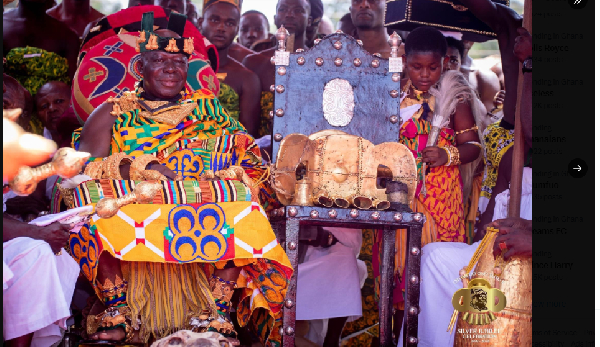
Wounded Orangutan uses plants as medicine

On 22nd June 2022, scientists working in Indonesia witnessed a male Sumatran Orangutan named Rakus with a wound on his cheek.
He was believed to have been injured while fighting with rival male orangutans.
Events that followed immediately after Rakus got injured shocked the scientific world.
Three days after being injured, Rakus started eating the stem and leaves of “fibraurea tinctoria”, a medicinal plant.
Rakus spent about 13 minutes eating the plant, chewing the leaves and applying the plant’s juices onto his wound.
Within five days, the wound had closed,
A month after the injury was sustained, it appeared to have fully healed.
This is the first time an orangutan has been documented treating a wound on its face with a medicinal plant.
In an exclusive interview with 3news, a cognitive biologist at the Max Planck Institute of Animal Behaviour in Germany and Lead Author of the research, Dr Isabelle Laumer said “This documented behavior suggests that medical wound treatment may have originated in a common ancestor shared by humans and orangutans”.
The findings of the research are expected to lead new insight into the evolution of self-care and medicine in great apes.
The medicinal plant used by Rakus, fibraurea tinctoria has several medicinal properties including anti-inflammatory, anti-bacterial and anti-viral properties.
It is used to treat diseases like dysentery, diabetes and malaria.
According to the release by the researchers, taking action to treat a wound is seen in humans as well as in African and Asian great apes.
The research findings on Rakus the orangutan, highlights the importance of medicinal plants in wound treatment and other ailments.
According to the World Health Organization, In Africa, herbal treatments are the most popular form of traditional medicine with 70 to 80 percent of the population using it as a form primary healthcare
Tonny Asafo-Adjei, Senior Research Scientist and Head of Plant Development at the Center for Plant Medicine Research hailed the research work on Rakus.
“You hardly will see an animal doing that unless you pay attention to the animal’s lifestyle for some time.
So, it was an amazing observation that was made, and it tells us that indeed there is a therapeutic value in plants even to the extent that animals, aside humans are using it.
He called for more research on the use of medicinal plants in Africa.
“Some funds should be allocated for such research for the Council for Scientific and Industrial Research, Center for Plant Medicine Research and Atomic Energy Commission to be able to do such observations that can help us identify species like this “fibraurea tinctoria” used by this ape.”
Dr Isabelle Laumer is hopeful the research will raise awareness on the critically endangered status of orangutans in the world.






